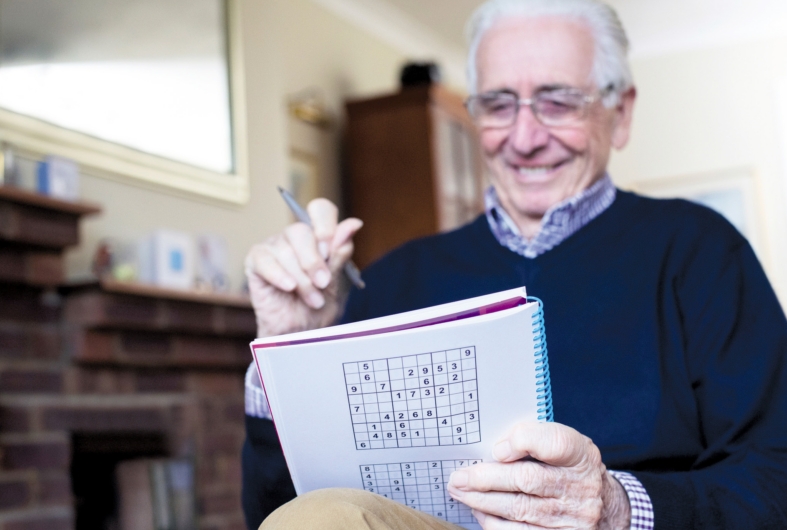

Cognitive function changes as we grow older
This is the second column in a three-part series about the aging brain.
Aging reduces the efficiency of our brains, but there is an upside.
“The brain begins to compensate by using more of itself,” explains Dr. Bruce Yankner, professor of genetics at Harvard Medical School.
Dr. Yankner explains that a teenager working through a problem will show a lot of activity on the side of the brain that we use for reasoning. In middle age, he said, the other side of the brain begins to help. In seniors, both sides of the brain share the task equally.
“Several studies suggest that seniors who can activate both sides of the brain actually do better on tasks, while those who can’t, do worse,” Dr. Yankner says.
Recent research has demonstrated that older brains have a few advantages over younger ones.
A study was done on air traffic controllers and airline pilots. The ones between the ages of 50 and 69 took longer than those under 50 to master new equipment. However, after the older controllers and pilots had learned, they made fewer mistakes using the equipment.
After the hormone changes that occur as we age, people are less likely to have emotional issues such as mood swings that interfere with brain function.
Older people are less likely to rush to judgment and more likely to reach the right conclusion based on the information.
Judging space is a skill that improves with age. For example, when older people are driving, they are better able to assess the distance between their cars and objects on the road, such as another car.
What can we do to improve the way our brains work? There are techniques to maximize our brain power as we age.
Physical exercise is the best-documented way to preserve brain function. It helps you to lay down new memories and better focus on the tasks ahead of you. Thirty minutes of moderate exercise on most days is all you need.
Dancing may also have an anti-aging effect on the brains of older adults. A study by the German Center for Neurodegenerative Diseases in Magdeburg found that the most profound effect of exercise was among people who danced.
A key component of brain health is diet. In 2018, researchers linked omega-3 and omega-6 fatty acids in the blood with healthy brain aging. Sugar and diet varieties of soda are associated with poorer brain health.
Another study has also determined that consuming foods in the Mediterranean or MIND diet is associated with a lower risk of memory difficulties in older adults. The MIND diet emphasizes whole grains, berries, green, leafy vegetables, other vegetables, olive oil, poultry and fish.
Researchers at Baycrest Health Sciences in Toronto, Canada, revealed that playing a musical instrument may help older adults reduce age-related cognitive decline and retain their listening skills.
A growing body of evidence suggests that people who experience the least declines in cognition and memory all share certain habits:
• Engaging in regular physical activity.
• Eating a healthful diet.
• Sleeping well.
• Pursuing intellectually stimulating activities.
• Staying socially active and managing stress.
[In our next column, we will discuss brain supplements.]
Fred Cicetti is a freelance writer who specializes in health. He has been writing professionally since 1963. Before he began freelancing, he was a reporter and columnist for three daily newspapers in New Jersey. If you would like to ask a question, write to [email protected].